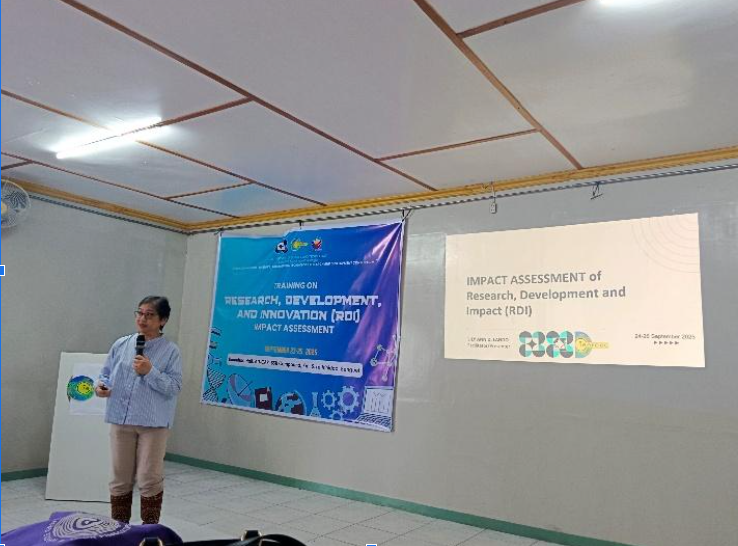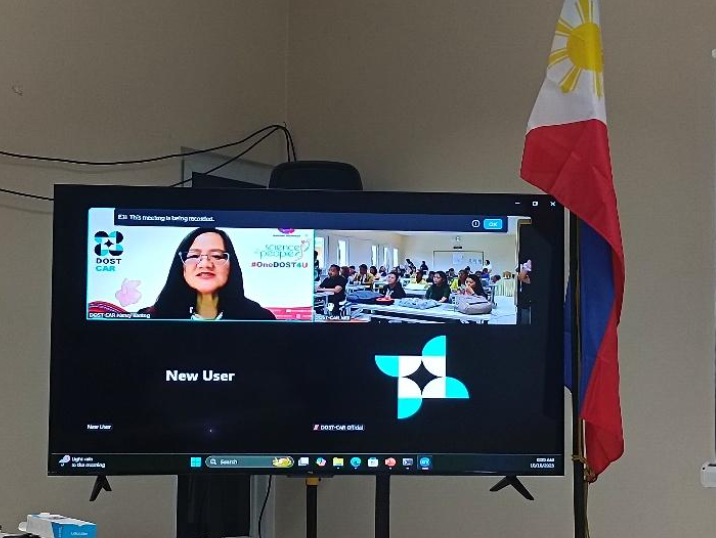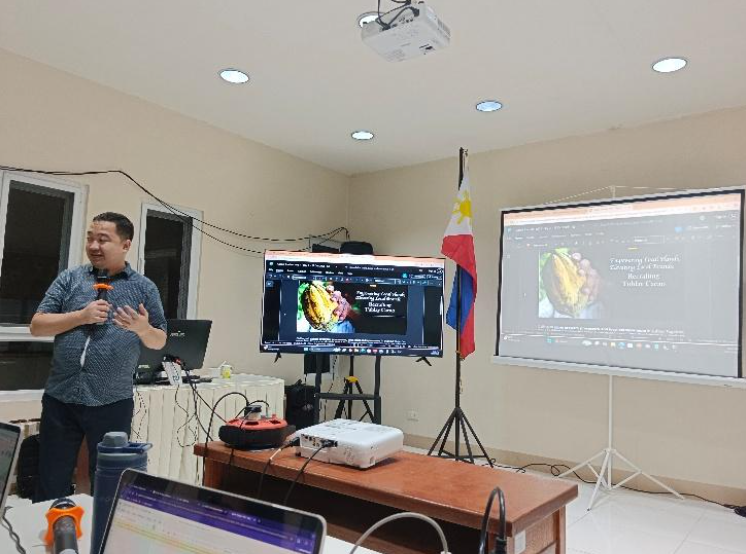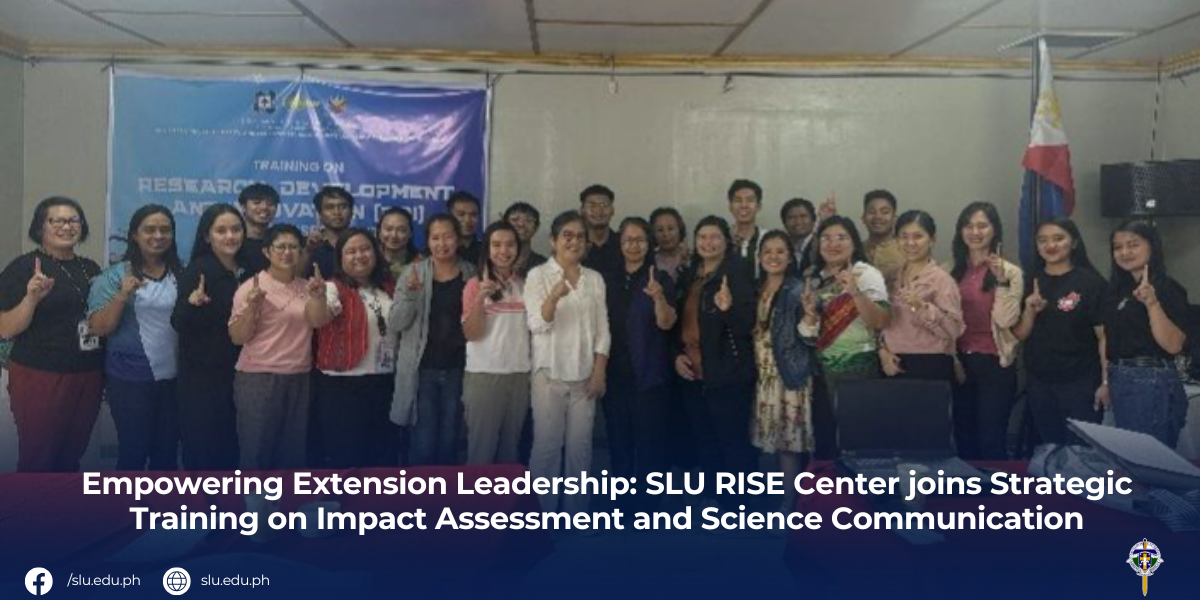To strengthen institutional research and extension leadership, Laarni Natividad, PhD and Jeramie Molino, PhD of the Saint Louis University Research, Innovation, & Sustainable Extension (RISE) Center participated in two intensive training sessions held on 24-25 September and 16-17 October 2025, at ATI-CAR, Benguet State University Compound, La Trinidad, Benguet.
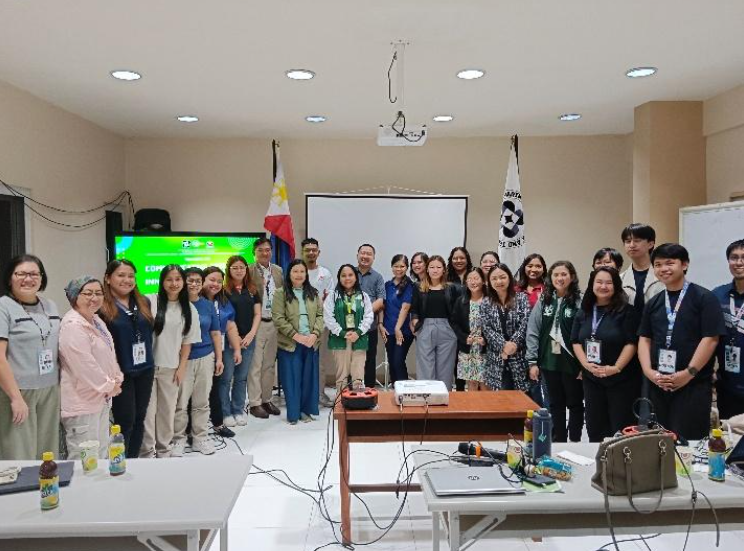
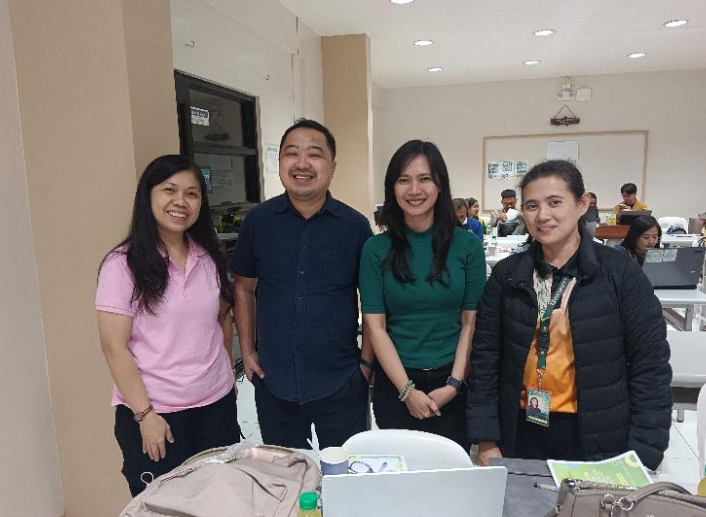
The training was organized by the Department of Science and Technology – Cordillera Administrative Region (DOST-CAR) and the Consortium for Industry, Energy, Emerging Technology Research and Development in the Cordillera (CIEERDEC). It focused on enhancing the capacity of extension leaders to assess program impact, communicate research effectively, and present findings with strategic clarity and ethical rigor.
The sessions were facilitated by Lily Ann D. Lando, PhD Impact Assessment expert, and Mr. Mark Ivan C. Roblas, MDC, Head of the Information Group at DOST-PCIEERD. These sessions equipped extension leaders with tools to assess program impact, communicate research effectively, and present findings with clarity and strategic intent.
Strengthening Impact Assessment and Ethical Practice
The training in September, led by Dr. Lily Ann D. Lando, focused on designing credible and participatory Impact Assessments (IA). Participants explored causal models, comparison methods, and indicator development using the DENR framework. A key emphasis was placed on tool validation, where Dr. Lando reminded participants that “before proposing new data requirements, carefully assess to what extent the existing data reflect the objectives set.” She also highlighted that “indicators should be RACER—Relevant, Accepted, Credible, Easy to monitor, and Robust.”
The training also addressed the ethical dimensions of IA, encouraging participants to embrace transparency and openness to scrutiny. “Impact is not only what we can measure,” Dr. Lando noted, “but also what we can responsibly communicate.”
Communicating Science with Strategy and Integrity
The October sessions, facilitated by Mr. Mark Ivan C. Roblas, introduced participants to the principles and practice of Science Communication (SciComm). The training emphasized that SciComm is not just about simplifying science; it’s about engaging audiences through storytelling, emotional connection, and ethical messaging. “Science communication is a bridge, not a megaphone,” Roblas stated, urging participants to move beyond one-way dissemination toward meaningful dialogue.
Participants learned to develop science communication (SciComm) plans using a six-step framework: identifying the topic, defining the audience, crafting the message, selecting the platform, and specifying expected outputs and outcomes. The training also covered social media strategy, with platform-specific best practices for Facebook, Instagram, TikTok, YouTube, and X. “Minimal cost, maximum impact,” Roblas emphasized, noting that over 70% of Filipinos are active on social media.
From Training to Transformation
Both Dr. Natividad and Dr. Molinio actively engaged in workshops that culminated in the drafting of impact study plans, SciComm strategies, and digital content tailored to SLU’s extension initiatives. These outputs are now being refined for institutional reporting and publication aligned with the SDGs.
The RISE Center’s participation reinforces SLU’s mission to institutionalize extension as a cycle of needs assessment, implementation, impact study, and publication. By integrating validated tools, adhering to ethical research practices, and employing strategic communication, SLU continues to champion SDG 4 (Quality Education), SDG 9 (Innovation), and SDG 17 (Partnerships).
As the university moves forward rooted on the CICM advocacy on dialogue, these trainings serve as a foundation for building a culture of visible, credible, and community-rooted scholarship, where every extension activity becomes a story of impact, and every story becomes part of SLU’s legacy. (Article by Jeramie N. Molino, PhD | Photos by SLU-RISE Center)
